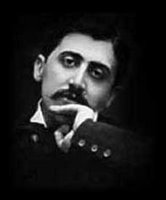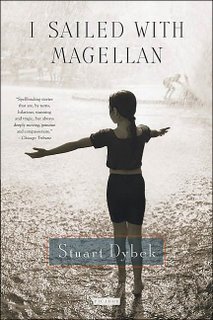The first time I saw Bob Dylan in concert was an amazing experience. This was Oct. 29, 1998, when I was in Toronto for a mini-vacation, with no plans to see any concerts. Dylan and Joni Mitchell happened to be playing a double bill at Maple Leaf Gardens, the hockey stadium next door to my hotel. Throughout the day, I kept passing by the guys selling tickets on the sidewalk. The prices seemed to drop a little just before the concert, so I snapped one up. Joni was pretty good, but Bob blew my mind. I’d heard rave reviews from his tours in the years leading up to that. He seemed to be at the top of his game in the 1990s, though it was hard to explain exactly why. He was on fire that night, singing with such gusto and passion. And taking lots of guitar solos. That was something I hadn’t expected, but Dylan was actually a pretty impressive guitarist, and as he danced around with his little soft-shoe shuffle he was wailing away on his electric guitar during the breaks on songs like “My Back Pages.” I thought to myself, “Why have I waited so long to see this guy?”
What was going on with Dylan at the time? In Chronicles, Volume One, that marvelous but sometimes mystifying memoir, Dylan writes about his struggle to keep his vitality as a performer. In 1987, as he toured with Tom Petty & the Heartbreakers, he was “sick of living a mirage.” And then he had a musical epiphany during a concert on Oct. 5, 1987, in Locarno, Switzerland. At one moment, he opened his mouth to sing and nothing came out. Somehow, Dylan recovered from that lapse, and he describes what he did in almost magical terms:
“Figuring I had nothing to lose and not needing to take any precautions, I conjured up some different type of mechanism to jump-start the other techniques that weren’t working. I just did it automatically out of thin air, cast my own spell to drive out the devil. Instantly, it was like a thoroughbred had charged through the gates. Everything came back, and it came back in multidimension. Even I was surprised. It left me kind of shaky. Immediately, I was flying high. This new thing had taken place right in front of everybody’s eyes. A difference in energy might have been perceived, but that was about all. Nobody would have noticed that a metamorphosis had taken place. Now the energy was coming from a hundred different angles, completely unpredictable ones. I had a new faculty and it seemed to surpass all the other human requirements. If I ever wanted a different purpose, I had one. It was like I’d become a new performer, an unknown one in the true sense of the word. In more than thirty years of performing, I had never seen this place before, never been here. If I didn’t exist, someone would have to have invented me.”
Invigorated by this new way of singing (whatever it was), Dylan also determined to discover a new way of playing guitar. He remembered old-time jazz and blues guitarist Lonnie Johnson once showing him a method.
“Lonnie took me aside one night and showed me a style of playing based on an odd- instead of even-numbered system. He had me play chords and he demonstrated how to do it … I had the idea that he was showing me something secretive, though it didn’t make sense to me at the time because I needed to strum the guitar in order to get my ideas across. It’s a highly controlled system of playing and relates to the notes of a scale, how they combine numerically, how they form melodies out of triplets and are axiomatic to the rhythm and the chord changes. I never used that style, didn’t see that there’d be any purpose to it. But now all of sudden it came back to me, and I realized that this way of playing would revitalize my world. The method works on higher or lower degrees depending on different patterns and the syncopation of a piece. Very few would be converted to it because it had nothing to do with technique and musicians work their whole lives to be technically superior players. You probably wouldn’t pay any attention to this method if you weren’t a singer … The system works in a cyclical way. Because you’re thinking in odd numbers instead of even numbers, you’re playing with a different value system. Popular music is usually based on the number 2 and then filled in with fabrics, colors, effects and technical wizardry to make a point. But the total effect is usually depressing and oppressive and a dead end which at the most can only last in a nostalgic way. If you’re using an odd numerical system, things that strengthen a performance automatically begin to happen and make it memorable for the ages. You don’t have to plan or think ahead.”
Frankly, I have no idea what Dylan is talking about here. What is this weird method of thinking about music in odd numbers? Is he making this up? Is it a mental game or an actual system of playing music? As Dylan’s explanation goes on, it seems that he’s talking about playing melodies with groups of three notes. Not triplets or waltzes, but melodic phrases … I think. “I don’t know why the number 3 is more metaphysically powerful than the number 2, but it is,” Dylan writes.
Well, whatever he was doing, it was working. Dylan was still in great form when I saw him a few years later at Chicago’s United Center on the Love and Theft tour. And then, when I saw him March 5, 2004, at the Aragon Ballroom and the following night at the Riviera Theatre, things had changed. Without explaining why, Dylan had stopped playing guitar and spent the showing standing behind a keyboard. He seemed less animated. The shows weren’t bad by any stretch, but compared to what I had witnessed earlier, they were disappointing. By last year, when Dylan played Oct. 27 at the Sears Centre, he seemed to have found his footing again, and it was a pretty solid performance.
And so, when I went to see Dylan last week (Oct. 29 at the Chicago Theatre… for some reason, I always seem to see Dylan concerts around Halloween), I wasn’t sure what to expect. I’d read that he had returned to playing guitar a little bit. He was touring with Elvis Costello and Amos Lee as his opening acts.
Amos Lee is not my cup of tea – a smooth, professional folk-pop singer whose music is inoffensively pleasant… so inoffensive that it bugs me. I can see why it might appeal to some of Dylan’s fans, but to my ears, it sounds closer to the music of Dylan’s son’s band, the Wallflowers, than the old man’s music.
I’m a big fan of Elvis Costello, on the other hand. Even if I have been frustrated occasionally by his dabblings in too many genres and his pretensions toward classical music and jazz standards, at his core, he’s still an excellent singer-songwriter. His solo acoustic set at the Chicago Theatre was top-notch stuff, with some classic tunes such as “Radio Radio” and “(What’s So Funny ‘Bout) Peace, Love and Understanding” as well as two new unreleased songs and that “Scarlet Tide” song from the “Cold Mountain” soundtrack, which he’s been playing lately as an anti-war anthem. Costello stepped to the side of the mike during that tune and actually sang out to the huge theater unamplified, a terrific and moving moment slightly marred by the annoying electronic tinkle of someone’s cell phone.
Dylan did indeed play guitar, for the first three songs, before moving over to the keyboard. He seemed to play well enough, though without the same fire or finesse that he had nine years ago. His voice has narrowed down to a raspy croak with a range of just a few notes. On some songs, Dylan has figured out ways of making that croak work, flattening out or lowering melodies but still putting across his words with conviction and clarity. At other times, he just can’t make it work. Case in point: The second song of the night, “Lay, Lady, Lay,” had virtually no vocal melody at all. It’s not that I was expecting a pretty croon out of this guy, but hearing Dylan creakily reciting the words to this song gave me the feeling that I was watching a great singer-songwriter whose powers of performance had been diminished by time and age. There’s still something moving about seeing such a legend, even in his twilight, but I felt a twinge of sorrow.
As the show went on, Dylan seemed to find his groove on certain songs. “Ain’t Talkin’,” my favorite track off his 2006 album Modern Times sounded excellent, but then again, as a recent composition, it was constructed specifically for that aged voice, not for the voice of Dylan as a young man. It’s lovely how this minor key tune ends on a major chord, like a ray of sun bursting through the gloom at the last second.
At times, Dylan’s band seemed to be tiptoeing around him, perhaps keeping the music nimble to give some space for his voice. His current musicians are great at playing old-time blues-rock with a jazzy touch, and at times, they were really cooking. However, the group has a tendency to make all of Dylan’s songs, even the old ones, sound like the music on Modern Times and Love and Theft. Some sonic variety would have helped.
As the concert entered the home stretch, I got the feeling Dylan was playing his standard classic concert-closers with a somewhat lackadaisical or perfunctory attitude. First, I have to wonder about his song selection. He does toss in obscure old tracks at every show, but with so many great songs to choose from, does he have to play “Highway 61 Revisited,” “Like a Rolling Stone” and “All Along the Watchtower” near the end of every concert? “Like a Rolling Stone” lulled instead of rocking, with Dylan sounding weary. During the encore, Costello and Lee joined Dylan onstage for “I Shall Be Released.”
Overall, Dylan and his band put on an all-right show, but this Dylan was a pale shadow of the Dylan I’d seen at Maple Leaf Gardens.
SET LIST: Cat’s in the Well / Lay, Lady, Lay / I’ll Be Your Baby Tonight / You’re a Big Girl Now / Rollin’ And Tumblin’ / Spirit on the Water / Cry a While / Workingman’s Blues #2 / Things Have Changed / Under the Red Sky / Highway 61 Revisited / Ain’t Talkin’ / Summer Days / Like a Rolling Stone / ENCORE: I Shall Be Released / Thunder on the Mountain / All Along the Watchtower


